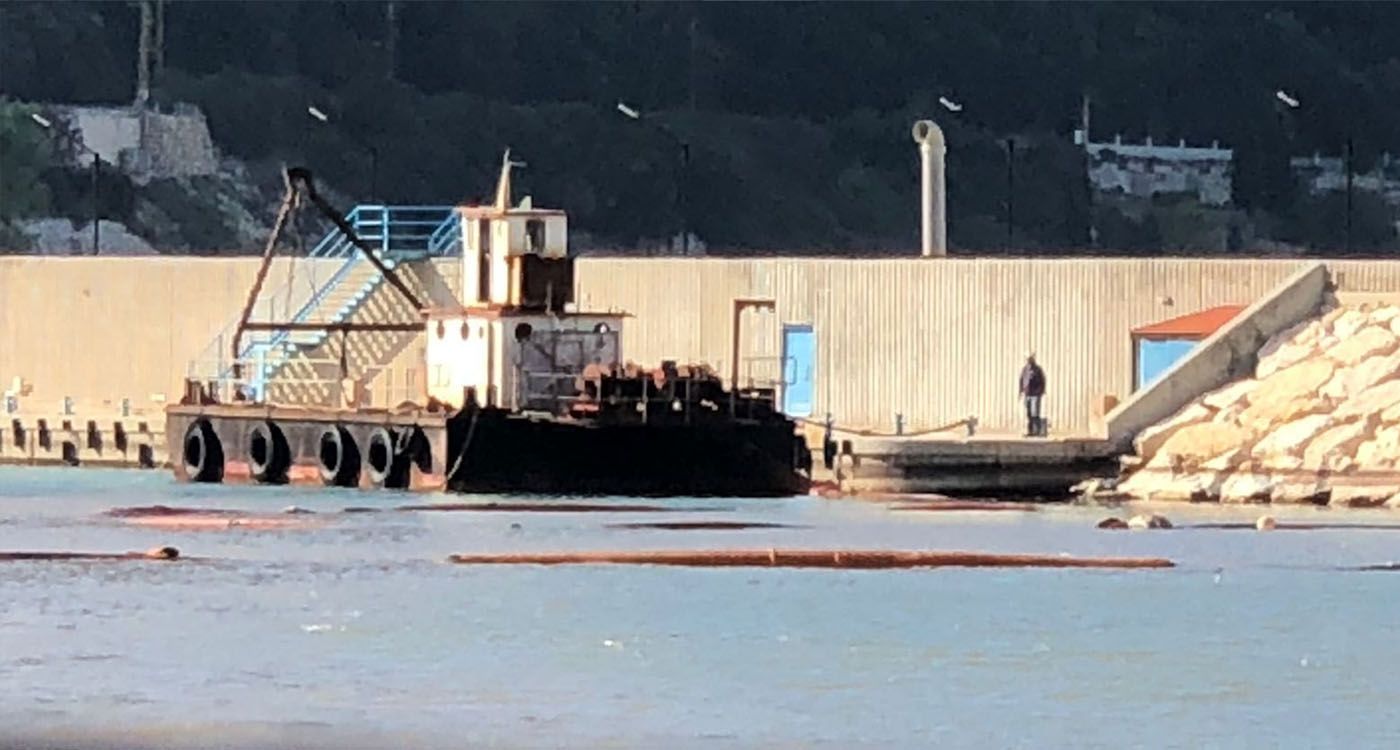
Illegal sand extraction operations on the beach of El Heri, located on the coast of the city of Chekka (North Lebanon), were halted after days of mobilization and negotiations, confirmed Pierre Abi Chahine, president of the Environmental Protection Committee in Chekka, on Wednesday evening to This is Beirut, following a visit to the site.
The environmental organization Terre Liban condemned on Sunday the “sand extraction operations near the Florida Beach resort complex on the beach of El Heri, in Chekka, Batroun district.” The organization announced on social media that it had reported “the arrival of a sand extraction vessel at El Heri beach,” expressing concerns about “the illegal extraction of nearly 30,000 cubic meters of sand.” It denounced these operations authorized by the Ministry of Public Works, without the consent of the Ministry of Environment. It called on the Parliamentary Committee of Public Works to “hold Minister Ali Hamieh accountable,” “revoke the license,” and “save the beach.”
At the request of the aforementioned NGO, the governor of North Lebanon, Judge Ramzi Nohra, issued a decision on Monday instructing the Internal Security Forces (ISF) to “immediately halt the operations,” citing a “violation of legal principles” since the ministry had not obtained the approval of the relevant municipality, nor that of the Ministry of Environment, nor had it conducted an environmental impact assessment.
The village of El Heri, a popular tourist destination, is renowned for its sandy beach, part of which could be lost due to these operations.
In an interview with This is Beirut, Pierre Abi Chahine warned against this kind of operation, explaining that “it would take hundreds of years to replace the sand extracted.” He added that “the sand in the Mediterranean basin originates from the Sahara. However, this flow stopped after the digging of the Suez Canal by French diplomat Ferdinand de Lesseps in 1869.” According to Abi Chahine, “this type of sand is unsuitable for construction because the salt it contains corrodes steel. Therefore, using it for construction is, in itself, an offense.”
Contacted by This is Beirut, Ghayath Yazbeck, a member of the Lebanese Forces (LF) and the Parliamentary Committee for Environment, condemned the “anarchy” of some officials and the “impunity” they enjoy. He criticized “the granting of such licenses by the Ministry of Public Works (which is close to Hezbollah) under the pretext of necessary work to improve coastal areas.”
Yazbeck further estimated that the extraction of 30,000 cubic meters of sand is equivalent to the load of 2,000 trucks, each capable of carrying nearly 40 to 50 tons of sand. According to Abi Chahine, it could be even more than 2,000 trucks. “An enormous amount whose extraction could severely threaten the ecosystem, marine resources, wildlife, and flora, but above all, it could cause coastal erosion,” warned Yazbeck. He expressed regret “to see this region of North Lebanon (Chekka) deteriorate due to such works over the past 40 years.”
Yazbeck also noted that “Lebanon is a signatory to international conventions on the protection of beaches and marine areas, which, unfortunately, are not respected.” He praised the mobilization of Terre Liban and added that he had encouraged the governor of North Lebanon, Ramzi Nohra, to issue the decision “to stop this crime.” Yazbeck cautioned against “similar operations in other regions being carried out without the knowledge of the officials.”
It is worth noting that last year, an ecological disaster occurred at the Nahr el-Kalb river in Keserwen. Sand had been extracted to a depth of two to three meters, while it is formally recommended not to remove sand from depths greater than 60 cm.

Comments